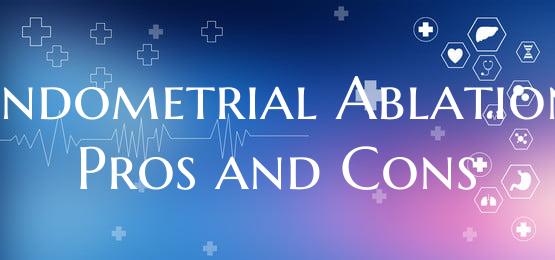
Endometrial Ablation Pros and Cons
Endometrial ablation is a medical procedure that is designed to treat abnormal uterine bleeding by removing or destroying the lining of the uterus. Like any medical procedure, endometrial ablation has its own set of pros and cons that should be carefully considered before making a decision. Understanding these factors is essential for patients contemplating this treatment option.
Pros of Endometrial Ablation:
1. Effective Treatment: Endometrial ablation is highly effective in treating heavy or abnormal uterine bleeding. Many women experience a significant reduction in bleeding or even a complete cessation of their periods after the procedure.
2. Minimally Invasive: Endometrial ablation is typically performed on an outpatient basis and does not require major surgery. This results in less pain, shorter recovery time, and fewer complications compared to traditional surgical options.
3. Preserves Fertility: Unlike a hysterectomy, which removes the uterus entirely, endometrial ablation allows women to retain their reproductive organs. This may be an important consideration for women who still wish to have children in the future.
4. Improved Quality of Life: For women suffering from heavy menstrual bleeding, endometrial ablation can lead to a significant improvement in their quality of life by reducing the need for frequent changes in sanitary products and alleviating the physical and emotional burden of excessive bleeding.
Cons of Endometrial Ablation:
1. Not Suitable for Everyone: Endometrial ablation is generally not recommended for women who have certain medical conditions such as uterine cancer, pelvic inflammatory disease, or abnormalities in the uterus that would prevent the procedure from being performed safely.
2. Possible Side Effects: While endometrial ablation is considered safe, some women may experience side effects such as cramping, pelvic pain, and discharge following the procedure. In rare cases, complications like infection or injury to surrounding organs may occur.
3. Potential for Recurrence: Endometrial ablation may not be a permanent solution for all women, as some may experience a return of abnormal bleeding months or years after the procedure. In such cases, additional treatment may be necessary.
4. Impact on Future Pregnancy: Although endometrial ablation does not directly affect fertility, it may increase the risk of complications during pregnancy if conception occurs post-procedure. Women who undergo endometrial ablation should use reliable contraception to prevent unintended pregnancies.
In conclusion, endometrial ablation can be an effective treatment option for women suffering from heavy menstrual bleeding, but it is important to weigh the pros and cons carefully and consult with a healthcare provider to determine if this procedure is the right choice based on individual circumstances.